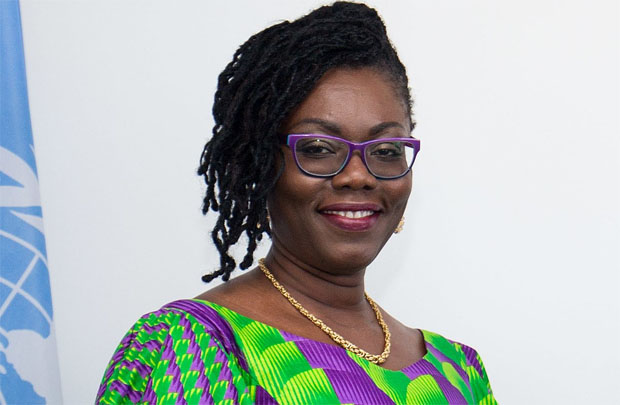Ursula Owusu Ekuful, Minister of Communication
THE GOVERNMENT of Ghana and key stakeholders in the nation’s communications space have agreed not to change the decision of choosing an independent company, Central Digital Transmission Company Limited (CDTC), to operate and manage the country’s infrastructure for the Digital Terrestrial Television (DTT) project.
Some of the key stakeholders like the Ghana Independent Broadcasters Association (GIBA) and the National Media Commission (NMC) had earlier raised concerns about the choice of the Communications Ministry for a foreign company for the project.
GIBA had specifically indicated that a new agreement between the government and StarTimes dubbed ‘Access to Satellite TV for 300 Villages in Ghana Project’ will be inconsistent with a roadmap for Ghana’s DTT migration.
The ‘300 villages satellite TV project’ launched recently in Accra by the Minister of Communications, Ursula Owusu-Ekuful, is expected to benefit about 6,000 households drawn from 300 villages nationwide, as well as create numerous jobs for people within the selected communities.
The project is aimed at aiding Ghanaians, especially those in rural areas, to have access to TV information on national and international events and programmes that would educate and inform them.
However, in a release detailing reasons behind its opposition to the project, GIBA stated: “The agenda of StarTimes is not only aimed at profit or the indoctrination of Chinese culture (names, language, food, etc.) and programmes, but a larger mandate to take over the control of the broadcast space in strategic African countries including Ghana, which is crucial for the China game. . . . China does not allow foreign ownership of media and . . . will not allow the African broadcast media the space to trade our African channels in their country. Why then should African states give our broadcast space in the fashion as we are experiencing at the moment?”
But after a stakeholders’ meeting held on Thursday 27th September 2018, the various parties and government came to some conclusions on the matter notable amongst them being the need for the parties to collaborate in joint public education campaigns on the project, moving forward.
A post-meeting press statement signed by Information Minister designate, Kojo Oppong Nkrumah, observed that the parties have agreed to continue with engagement as the project proceeds.
“The earlier decision to have an independent company, Central Digital Transmission Company Limited (CDTC), operate and manage the infrastructure for the Digital Terrestrial Television (DTT) project remains unchanged,” it said.
The statement listed the key stakeholders that attended the meeting as: Ministry of Communications, Ministry of Information, Ministry of Finance, National Media Commission, National Communications Authority, Ghana Independent Broadcasters Association (GIBA), Film Producers Association of Ghana, Ghana Academy of Film and Television Arts, Ghana Actors Guild, National Film and Television Institute, Ghana Broadcasting Corporation, Ghana Institute of Engineering, K-net Limited and ILC Consultants.
According to the statement, the next meeting for stakeholders is scheduled to take place within the next four weeks.
BY Melvin Tarlue


